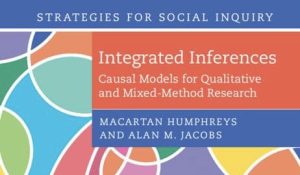Prof. Kathryn Harrison on Canada’s progress towards emissions targets
Canada is one of many countries to commit to reaching net-zero emissions by 2050. Professor Kathryn Harrison says Canada has significantly narrowed its implementation gap but is still not on track to meet this emission target.
Welcoming Assistant Professor Sophie Borwein to UBC Political Science
The Department of Political Science welcomed Dr. Sophie Borwein to UBC this past September as an Assistant Professor. Dr. Borwein joins us from Simon Fraser University’s School of Public Policy, where she taught after earning her doctorate from the University of Toronto.
Prof. Kathryn Harrison discusses Canada’s climate progress heading into COP28
Professor Kathryn Harrison discusses Canada’s climate Progress heading into COP28 in Dubai. Leaders will negotiate a plan for our changing planet against a backdrop of concurrent crises and war in the Middle East.
Op-ed: Prof. Michael Byers on the environmental impacts of Alberta’s tar sands
Prof. Michael Byers explains that many energy sources, such as wind and solar, are cheaper and cleaner than the tar sands oil. He says that the public and political figures need to change their behaviours and embrace “brave and bold policies.”
Prof. Kathryn Harrison on the significance of Liberal MPs making their climate argument public
Professor Kathryn Harrison explains that the recent letter signed by 19 Liberal MPs urging the government to release draft cap emissions regulations is a “big deal” because it took the argument outside of caucus and made it public. These emission caps are important for Canada to meet its Paris Agreement 2030 target.
Prof. Alan Jacobs releases new book: Integrated Inferences
Alan Jacob’s new book, Integrated Inferences, develops a framework for using causal models and Bayesian updating for qualitative and mixed-methods research.
Prof. Stewart Prest on Premier Eby’s “selectively aggressive” first year in office
Professor Stewart Prest says David Eby has become “more comfortable in the office” during his first year as Premier, adopting a “selectively aggressive” governing style in two key areas: a new police force in Surrey and housing.
Prof. Kathryn Harrison discusses whether B.C. would benefit from the federal carbon tax exemption
Professor Kathryn Harrison discusses the possibility of a federal carbon tax exemption in B.C. A carbon tax is a policy tool aimed at reducing greenhouse gas emissions by placing a price on carbon emissions from the combustion of fossil fuels.
Alberta’s ethics commissioner suspending investigations into provincial politicians during elections is puzzling, says Prof. Max Cameron
“It looks like the premier has got herself into trouble around conflict of interest and the solution is, well, we’re not going to have conflict of interest investigations during an election,” Cameron said.
How does Canada’s carbon tax work in practice? Prof. Kathryn Harrison explains in CBC News
A homeowner with a big house, heated with fossil fuels, who drives a gas-powered vehicle will pay more money than they get back, said Prof. Harrison, creating an incentive for people to lower their carbon footprint.








